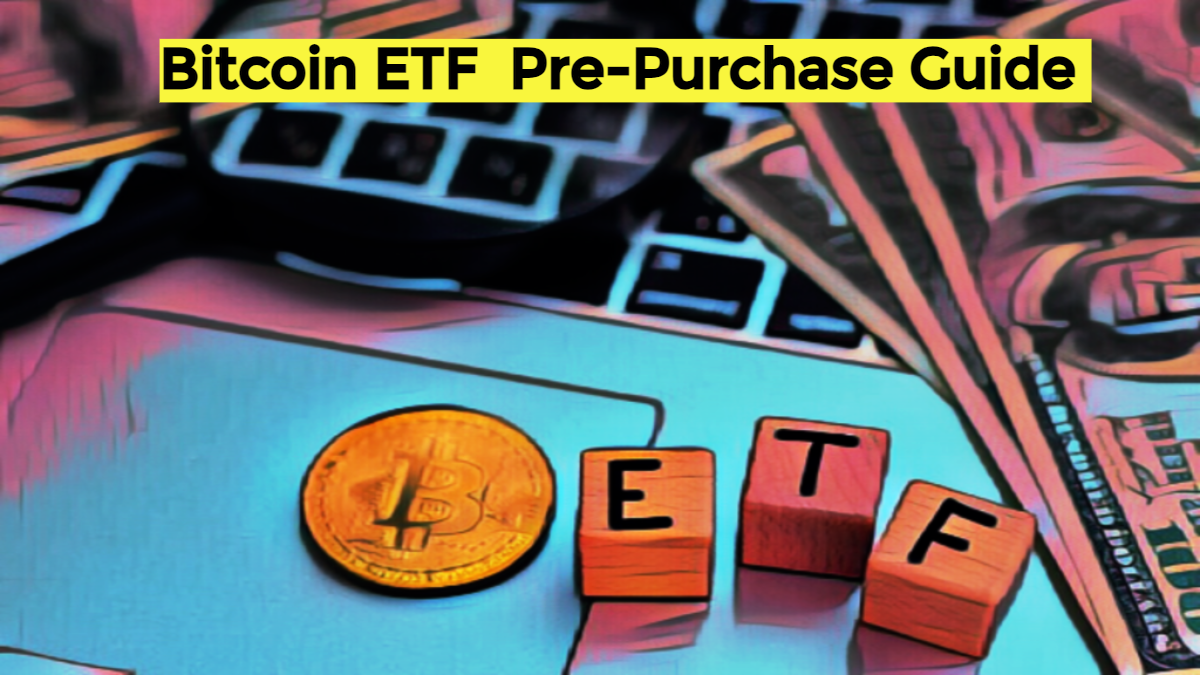- Understand the fundamental differences between decentralized Bitcoin and regulated Bitcoin ETFs.
- Spot Bitcoin ETFs involve a meticulous process from secure storage to share issuance, with the goal of reflecting the market value of Bitcoin.
- Things to consider before investing include cryptocurrency market volatility, management fees, and the unregulated nature of Bitcoin.
As Bitcoin ETFs gain regulatory approval and attract the attention of eager investors, a nuanced understanding of the dynamics between traditional Bitcoin ownership and ETF investing has become important. Here’s a deeper dive into what potential investors need to know before delving into the Bitcoin ETF space.
Deciphering the Difference: Bitcoin vs. Bitcoin ETF
Essentially, Bitcoin is a decentralized cryptocurrency that operates on a blockchain, where records of transactions are maintained and new units of digital currency are created through the solving of complex mathematical problems.
Bitcoin ETFs, on the other hand, operate within the realm of regulated investment companies subject to the oversight of the U.S. Securities and Exchange Commission. (secretary). Unlike the decentralized and unregulated nature of the Bitcoin spot market, ETFs are similar to mutual funds and boast defined investment objectives that issue shares registered with the SEC and are managed by qualified professionals.
In the case of Spot Bitcoin ETF, investor funds are pooled to facilitate immediate Bitcoin purchases. ETFs managed by investment companies enter existing stock exchanges.

ETF Investment Mechanism: Process Disclosure
Spot Bitcoin ETFs utilize registered custodians to securely store Bitcoin in digital vaults and seek to replicate the market value of the cryptocurrency. ETFs begin their journey by acquiring Bitcoin from other holders or approved cryptocurrency exchanges. The tokens thus acquired are held in a digital wallet reinforced with multiple layers of security.
The ETF then issues shares in proportion to its total Bitcoin holdings. The stock price is in line with the general cryptocurrency market price and is publicly traded. To maintain this alignment, the ETF continually adjusts its holdings through token acquisitions or dispositions.
Authorized Participants (APs) play a pivotal role in the creation and redemption process. Large financial institutions typically respond to market demand by issuing or repurchasing significant blocks of ETF shares. If ETF shares are trading at a premium or discount, AP will perform creation or redemption of shares accordingly.
Important considerations before diving in to avoid FOMO
Before investing in Bitcoin ETFs, potential investors should understand the nuances that govern the pricing, availability, and trading of these assets. Chief among these considerations is the inherent volatility of the cryptocurrency market. The symbiotic relationship between cryptocurrency prices and ETF values means that even minor movements in digital asset prices can cast a shadow of uncertainty on ETFs.
Spot Bitcoin ETFs offer the convenience of bypassing the complexities associated with independently exchanging and securing Bitcoin, but they are not without costs. Management fees and expense ratios are built into ETFs and gradually chip away at potential profits.
Moreover, the lack of government regulation of Bitcoin creates ambiguity. In the absence of a comprehensive supervisory and regulatory framework, issues related to fraud, manipulation and asset loss remain unclear. Until these regulations are firmly established, the market as a whole continues to grapple with the risks posed by lack of oversight.

